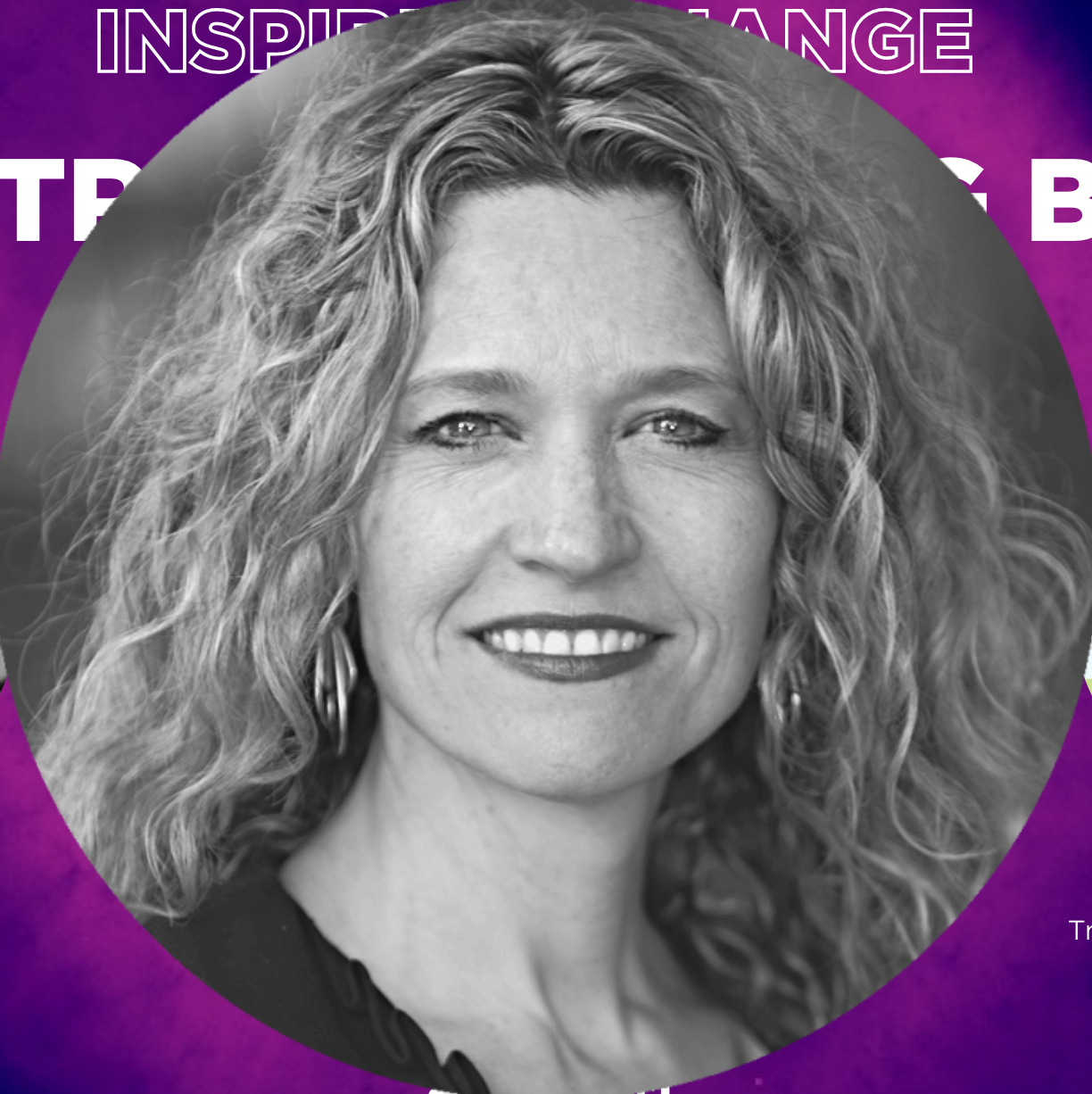Inspiring Change: ‘Women Transforming Business’ Panel Discussion
Last week FromHereOn hosted an expert panel discussion at WPP in London to amplify the stories of successful women leaders in technology.
Our guest panelists Whynde Kuehn, Susan Abishara and Rachel Higham initiate and drive major transformation programmes for a living. During the event, these three experienced leaders explored the lenses of business agility, impact and scale in transformation, proving the future of large scale change lies in progressive leadership and culture.
Whynde, Susan and Rachel generously shared their insights and vast, varied experiences. Together they probed into the importance of culture, mindset, trust and diversity in navigating the complexities of our rapidly changing body of work.
Highlights reel. For the full session recording, you can watch it here
Meet the panel members
In our world, the esteemed panel members need no introduction, but if you’re unfamiliar with their work, here’s a little about them.
Susan Abishara
Global Agility Practice Leader at FromHereOn
Best selling author, known for tackling the sacred cow ‘agility’ debate head on.
Rachel Higham
Chief Information Officer at WPP
Trailblazer in digital transformation and fierce champion of diversity, Rachel empowers WPP's technology landscape with her innovative spirit and future-forward vision.
Whynde Kuehn
Founder & MD, S2E Transformation
A visionary in business transformation, equips organisations with the tools to navigate the digital age, while also simplifying the complex world of business architecture.
From Our Panelists: Speed, Impact and Scale
Speed: Driving transformation performance and agility for speed.
Susan Abishara first shared her insights on the importance of business agility in digital transformation. Drawing on her 30 years of experience, Susan says to be fast and adaptive, organisations need to consider agility through three lenses:
Political Agility: Abishara emphasised the importance of understanding power dynamics and how they change during transformations. Leaders need to be aware of shifting alliances and relationships to navigate organisational politics effectively.
Cultural Agility and Alignment: She also discussed how the disconnect between executive goals and team actions can derail transformations. Fostering open communication, empowering teams and demonstrating progress can help bridge that gap and create alignment.
Financial and Prioritisation Agility: Finally, Abishara explained that organisations often struggle with prioritisation, adding more money and people to transformations without properly prioritising their work. To be fast and adaptive, organisations must make informed decisions about resource allocation, even stopping other initiatives at times to focus on transformation.
Impact: Making digital futures possible by harnessing the power of purpose and impact.
Rachel Higham inspired the group with her passion for sustainability and purpose-driven transformation. Through her work with WPP, she wants to help organisations to achieve strategic goals but also create a positive impact on people and the planet. She showed how embedding purpose into transformation can lead to innovation and collaboration, contrary to some traditional thinking.
Higham implored other organisations and leaders to:
Make purpose the foundation of transformation: Embed your organisation's purpose into every aspect of your transformation efforts to inspire collaboration, curiosity, and innovation. For example, for Higham and WPP, sustainability is not an afterthought or an add-on but is infused into everything they do. This purposeful approach has led to numerous sustainability outcomes at scale, which have positively impacted WPP's supply chain and partners.
Drive sustainability through purpose: Integrate sustainability goals into your transformation initiatives, from technology selection to daily habits.
Encourage small-scale changes with large-scale impact: Even small behavioural changes, when combined with purpose-driven campaigns and movements, can lead to meaningful outcomes.
Scale: Turning Strategy into Reality on a Global Scale
Whynde Kuehn’s talent for turning big ideas into coordinated action across organisations is evident, and has led her to work with companies worldwide. She shared her experience in driving large-scale transformation efforts, with a focus on customer-centricity.
Kuehn highlighted four lessons she’s learned:
Leveraging architecture as the foundation for transformation: Align business and technology architecture with your organisation's strategy to ensure adaptability in the face of change and disruption.
Creating a clear vision with step-by-step progress: Develop a coherent vision for your transformation and focus on gradually implementing new structures and ways of thinking.
Building a continuous transformation muscle: Equip your organisation with the ability to adapt and change on an ongoing basis, supported by agile practices and end-to-end strategy execution.
Focusing on purpose-driven transformation: Foster ethical, transparent, and accountable work environments while delivering valuable, sustainable products and services.
Questions for our panel
After hearing the stories of our panellists, we opened up the floor to questions. As the panel discussion unfolded, the microphone found its way around the room, connecting audience members with our panellists and allowing for personalised, actionable insights for organisations. We’ve grouped some of the takeaways that came out of this discussion that can be applied to transformation teams generally.
The Importance of Culture, Mindset and Trust in Transformation
Abishara emphasised the significance of culture in transformations, stating, "culture is a lag indicator and behaviour is a lead indicator." To transform, organisations must start by changing behaviour, beginning with themselves.
Higham suggested breaking down complex frameworks into core behaviours and training everyone in those behaviours for more accessible and efficient learning. This approach enables organisations to focus on the essential aspects of transformation while fostering a culture of continuous improvement.
Higham emphasised that ‘transformation is about transforming how we transform’: Successful transformation involves building a continuous muscle to adapt and change, underpinned by agility and end-to-end strategy execution. By embracing a mindset of continuous improvement, organisations can stay agile and responsive in the face of ongoing change.
When it comes to embracing hybrid work, the panel stressed the importance of creating moments that bring people together. They also encouraged holding open discussions about different working styles, and empowering teams to choose what works best for them.
The panel agreed that by fostering open communication, empowering teams, and demonstrating progress, organisations can successfully navigate the complex process of change.
Emerging Technology in Transformation
Kuehn stressed the importance of thoughtfully integrating new ideas and technologies into an organisation's strategy. She highlighted the need for organisations to become comfortable with continuous transformation.
Balancing this with caution, Higham touched on the impact of AI on organisations, expressing concern about its rapid acceleration. She urged organisations to adopt a measured pace and put guardrails in place to ensure responsible and ethical AI deployment, emphasising the importance of AI as an augmentation to human capabilities, rather than a replacement.
Embracing Diversity and Inclusion in Enterprise Architecture and Technology
Kuehn revealed that women only make up around 13% of professionals in the field, which is something FromHereOn and the panel are passionate about increasing. The panel are encouraged by the response to the Global Women in Architecture Initiative.
Addressing diversity and inclusion, Higham acknowledged the progress made but urged organisations to do more to create truly inclusive environments and human-centred approaches.
The panel agreed that AI and technology democratises creative tools and capabilities, enabling a more diverse range of people to contribute to innovation.
Balancing Results and Preventing Burnout
Rachel Higham spoke of the need to strike a balance between delivering results and preventing burnout, highlighting the importance of fostering a culture of self-care and understanding the human aspect of change.. She shared that her team is currently discussing whether they need to slow down their pace to ensure the sustainability of their work. Higham She highlighted the importance of fostering a culture of self-care and understanding the human aspect of change, sharing that her own team are currently assessing whether to slow their pace to ensure sustainability of their work. She says in addressing change fatigue, leaders need to empathetically listen to their team, and that it’s essential to build trust and momentum while recognising and rewarding team members along the way.
Kuehn also emphasised the importance of community and surrounding oneself with like-minded individuals for support during transformation.
Thank you to our distinguished panel for their valuable insights and generously sharing their wisdom gained from careers spanning decades in transformation. It was an honour to host the ‘Inspiring Change: ‘Women Transforming Business’ Panel Discussion in London at the WPP offices, stay tuned for more events.
Watch the full session
For those who missed it, catch the video recording and experience their wisdom firsthand.
Thank you once again to Susan, Rachel, and Whynde for providing such insightful contributions and continued advocacy in the space.
Enjoy the watch.
Resources
For further reading, our panelists endorse the following resources:
-
Biz Arch Mastery: Offers free resources to master the art and science of business architecture, interactive programs, and community engagement.
Strategy to Reality Companion: A free online resource with diagrams corresponding to each chapter of the book "Strategy to Reality."
Women in Architecture: An initiative focused on gender equality in the field of architecture. Join the WIA Community for free
Business Architecture Guild: Provides access to the business architecture body of knowledge and other resources.
-
Is This The End of Agility?: A book that explores the concept of agility and its role in modern organisations.
iSTEM Co.: A research, consulting, and talent-sourcing company dedicated to women in STEM, including women of colour and women from culturally and linguistically diverse backgrounds.
Project F: Aims to address systemic gaps that prevent sustainable progress in attracting and retaining top women in tech.
-
BT’s TechWomen programme: Aims to attract and retain female talent in technology roles within the company.
FACT: A charity dedicated to using arts and technology to solve social issues.
Brixton Finishing School: Offers training and development for underrepresented talent in the creative industries.
VisibleStart: Launched by the Uninvisibility Project, this free UK training programme is for women over the age of 45 who want to enter or re-join the industry.
WPP’s Elevate sponsorship programme: Supports the development and progression of diverse talent within the company.
“[When we get this right] we’ll see a better representation of the people we’re serving. This diversity of voices will bring to the table the very people we’re designing for. We’ll benefit from a rich array of perspectives, and this melting pot of different experiences, genders, religions, and sexualities will accelerate innovation and idea generation. In an industry that thrives on creativity, we need this diversity to deliver not only great creative outcomes, but also to design brilliant new products, campaigns, and services for our clients”







